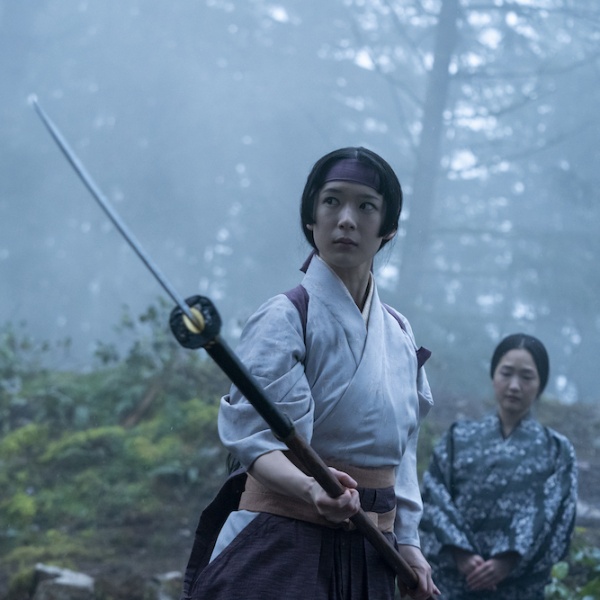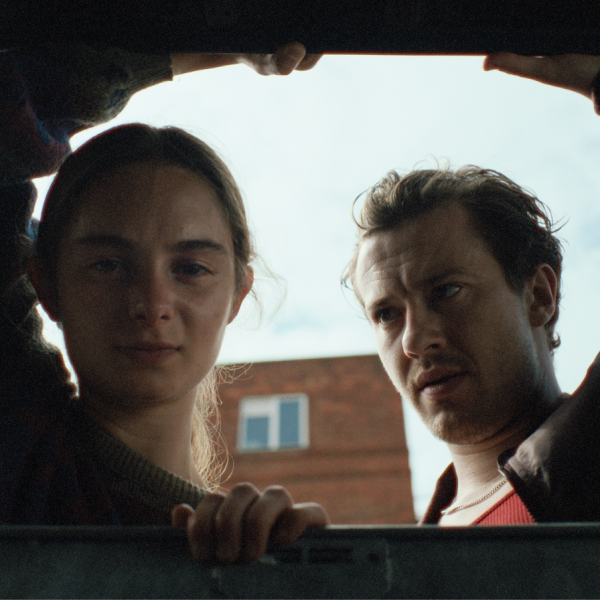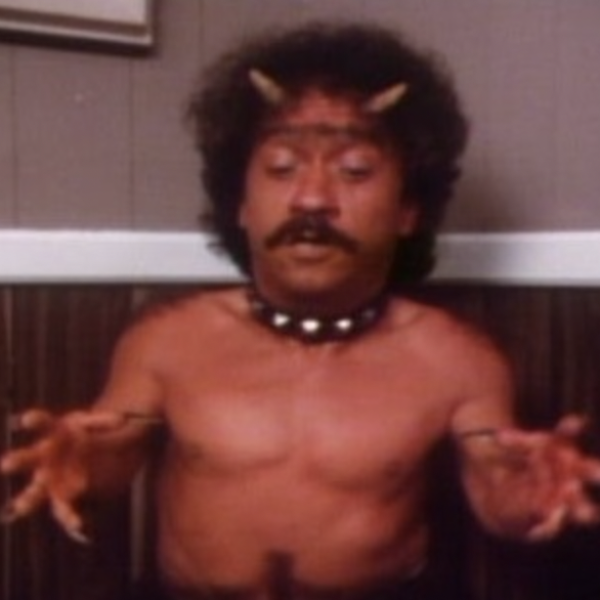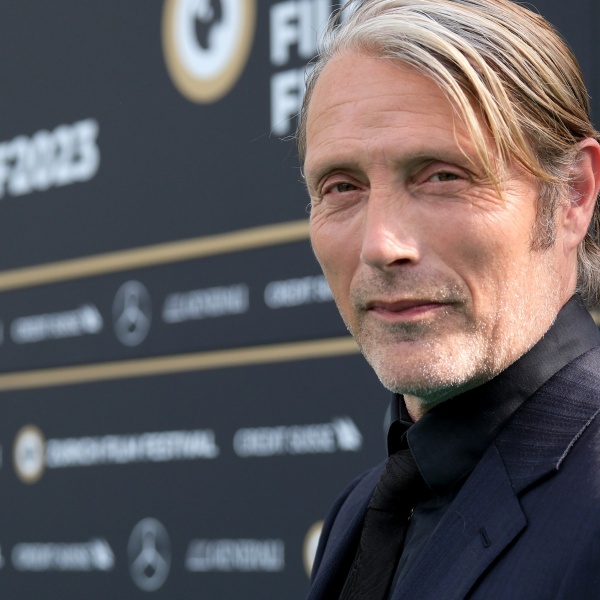Christian Petzold’s latest feature, “Afire,” takes a blacklight to the artistic ego and to the trope of the manic pixie dream girls who supposedly enshrine it.
The invigorated spin on what is typically that sort of character in a movie like “Afire” is realized in this deceptively light, Eric Rohmer-esque affair by Paula Beer. The German director Petzold discovered the 28-year-old German actress with her performance in French filmmaker Francois Ozon’s black-and-white World War I-era drama “Frantz,” for which Petzold supplied German translation services. They’ve since collaborated on postmodern World War II drama “Transit,” water nymph allegory “Undine,” and now this moving and bitterly hilarious film about an insecure, pretentious fiction writer named Leon (Thomas Schubert) and the alluring woman Nadja whom he’s sharing a summer vacation home with.
With Petzold and his former creative partner Nina Hoss (“Yella,” “Barbara,” “Phoenix”) on an indefinite and mysterious hiatus as confirmed by the “TÁR” actor last year, Paula Beer now enters the Petzold limelight. In a role more deeply sketched than the idealized love objects of “Transit” and “Undine,” Beer brings spiky intelligence to a literary scholar who moonlights as an ice cream vendor and is intrigued by Leon and his best friend Felix (whose family home serves as their summer stomping grounds while Leon tries to hammer out his sophomore novel) but not accommodating of his neuroses. Or, necessarily ready to run off into the horizon — and “Afire” is ablaze due to wildfires roaring on the periphery of the film’s bucolic German setting — when Leon finally tells her he loves her.
Beer only has a handful of screen credits to her name (and most of them are Petzold’s as well) but she brings a uniquely unfussy presence and worldly pragmatism to Nadja that suggest a far more experienced actor. Her character, while a bit barbed around the edges surely due to the many “geniuses” who’ve already tried to pluck her thorns, is also easy to fall in love with. When Leon solicits her opinion on an early draft of his manuscript for a book called “Club Sandwich,” she’s brutally honest about not liking it, and it’s only after Leon’s publisher wafts into town that he discovers Nadja has literary brilliance of her own. He just never thought to ask.

As Petzold told IndieWire, Nadja is “always doing something for herself, not for the camera and not for the other guys.” He said Beer came away from the script with the idea of Nadja that “‘I am an individual. And I’m not a projection. Yeah, this is the thing I liked so much.’ She is not dancing the night half-naked through the garden. She’s not working for the eyes of men.”
Beer, who spoke to IndieWire at the Criterion Collection offices in Manhattan, said Petzold “hates auditions, because the actor wants to get the part and then has to prove if they are able to do it, and Christian doesn’t have this point. He’s really more into, ‘I like your work, you seem like a nice person, let’s work together.’ That’s how it all began.”
Below, Beer talks “Afire” and her role in shaping Petzold’s oeuvre as much as he has.
The below interview has been edited for clarity and brevity.
IndieWire: When did you come into the process on “Afire”? I have to imagine Christian Petzold built this character around you.
Paula Beer: He was telling me the story while we were having lunch […] it was more like a tale, and he wrote that down and sent me the script, and I just really really liked it. He actually planned to do another movie, which would have been a drama, and really dark, and then the pandemic happened, and he was like, “I can’t do that movie, and I’m tired of drama. I wanted something full of life and joyful.” The good side of life. Of course, [“Afire”] turns to another point something later. When I read the script, I was like yeah I really feel that. That’s what I like about that movie so much, that it’s in a way lighter because it trusts the emotions of what it is like to be a human being, and it’s not so plotted or constructed, just free.
What was the other, darker movie?
It was a book adaptation, just really dark, about a man who falls in love with a woman who falls into prostitution.
What did Nadja offer you that “Transit” and “Undine,” where you are more playing the remote object ofaffection, didn’t?
What I loved about Nadja, in a way, she’s really pure, in the best way. She really knows who she is, she’s really self-confident. She always knows better, and she’s really chilled. She’s not this traditional female character that is focused on a male character. A more traditional character would be, like, when Leon says, “I love you,” it would be like slo-mo, eyes matching, but she’s like… “OK, but policemen are here. Sorry.” I loved that it’s a character who’s not applauding as soon as a man shows emotion. She’s like, “Most of the time, you’re an asshole, and you’re behaving like one, and right now, I am not available for you.” I like that she’s so in her own world. She’s really present and knowing of who she is. Like, “I am really involved in the ongoing story, but I am a bit leaned back, like, yeah, I watch you as well.”

Did you knowwith “Transit” that you immediately wanted to work with Petzold again?
I didn’t want to just continue working because we did one good movie together. I wanted us to come together because we decided on that project together.
So you won’t necessarily be in all of them. It’s not like a certain period of Ingmar Bergman where you just assume or know Liv Ullmann is going to be in that movie.
I would love to keep on working with Christian but expectation can ruin so much and I feel coming from a shoot like “Afire,” which was the best shooting I ever had, and then the feeling of “of course, I will be in his next movie,” I think this can ruin the whole process of having had a great time together, and then being like, OK, I’m in the next movie, but maybe I have troubles with the script or I don’t understand the character, and then you have a horrible shooting because you argue about it and then, in the end, you don’t want to talk to each other anymore. You always have to find your way together again and not take it for granted.
I almost thought “Afire” was a COVID-produced film given the outdoor setting and the minimalism of the cast and story, but it was actually made toward the end of the pandemic. But did your real-world environment mirror the one in the moviein any way?
Shooting the movie all outside made it really easy for the whole crew [with COVID restrictions]. The sad thing was that at that time it was really hot in and around Berlin, and we had lots of fires at that time, and there was one really close to the city they couldn’t control because there was so much old military [explosives]. There were one or two weeks before shooting when I spent a weekend with friends in a house — the fires were on the Baltic Sea but we were around Berlin — and we had the radio on, and they said there were fires, and the road was closed, and we thought, “How do we get home?” I realized that’s like the reality of the movie. The air was so polluted. That’s created by us but nature is getting it to the next level.

Petzold worked closely with Nina Hoss for many years, but they are now taking a creative break where you’re playing the kinds of roles in his films that she used to. Can you say anything about what caused their rift?
We met in Venice and that was really nice because she was on the jury when I got the Newcomer Award. She knew I was going to shoot with Christian and she said, “You’re going to have a great time. It’s great working with him.” I think we might have crossed since but I think there’s nothing between us. There’s no — how do you say it? — bad blood. It’s more their collaboration, it’s between them. If you’re working [together] for such a long time, maybe it’s like taking care of your relationship. You have to take care of it, and you have to be gentle, check your expectations, check your experiences together. Working on movies, on every project, it gets really intense because you spend so much time together […] and then you don’t see each other. It’s a weird rhythm. Then you have to find each other again to keep on working [together]. It’s a challenging thing, and I’m kind of not a fan of saying, “Well, it ended.” I’d rather say, “They managed to do certain movies together and have a great time, and at one point, maybe it’s a break or pause.”
Janus Films and Sideshow release “Afire” in theaters on Friday, July 14.







